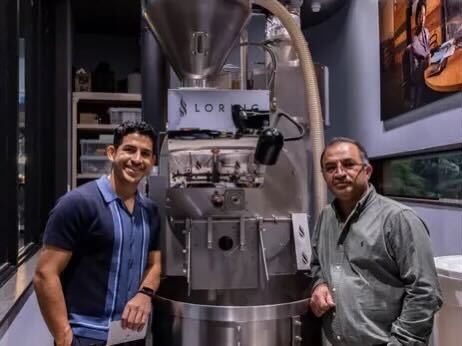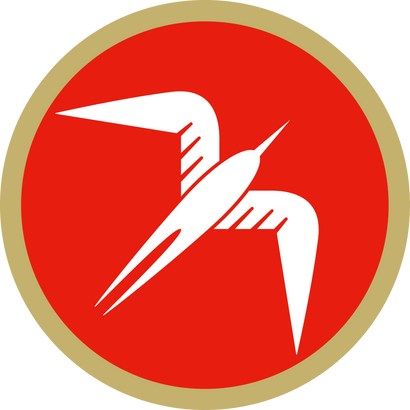
CABALLERO/HONDURAS
Caballero/ Honduras
Flavor Profile :
Apple&Cinnamon, Dried apricot, Maple syrup.
Producer : Marysabel Caballero & Moises Herrera
Farm : Caballero
Region : Chinacla, La Paz, Marcala
Country : HONDURAS
Variety : Catuai
Process : Natural
Altitude : 1600masl
Harvest : 2022
The first time we bought a coffee from Malysabel and Moises was in 2017.It was when we released our first Christmas coffee as Fuglen Coffee Roasters, and we bought the coffee from their El Pantanal plot as our first memorable Christmas coffee.
We continued to buy coffee from a specific plot called El Pantanal until 2020, and from 2021 we started to handle coffees other than Catuai, their primary cultivar. Java and Geisha, released this year, are also fresh in memory. When we roast their coffees, we are always surprised that the beans align when we open the jute bags. I vividly remember the first time I opened a bag of El Pantanal and was impressed by how clean the appearance was.
It has been four years since the release of a Christmas coffee🎅.We are happy to be again able to offer you the coffee of Marysabel and Moises.
They produce this coffee in a project called Bomba da Fruta ( = Fruits bomb ). This project aims to create a fruity coffee using natural and fermentation processes.The Caballero estate started producing natural-processed coffee about three years ago, but Moises has worked hard to perfect this process.
Only ripe cherries are harvested and dried in covered raised beds.The drying process is always challenging, as their plantation is located in the Markala area, which is humid, and the rainfall is high when the harvest is going on, and the drying process begins.It takes about 20 to 40 days for the drying process to be completed on their farms.
It is a challenge beyond imagination to create a natural processed coffee in such an environment, but this coffee also has a clean taste, and, as always, the work is done with great care and passion.

As a result of recent capital investments, the process in the wet mills (processing facilities) has been improved.Previously, after the fermentation process, the beans were further sorted by weight while washing the parchment in a washing channel, which is common in Ethiopia and other countries, but now a machine is used to wash the beans. (For more information, see origin trip).

Caballero producers Marysabel and her husband Moises and Marysabel's father Fabio grow coffee on approximately 200 hectares of land. Marysabel is in the fourth generation of producers, and Marysabel's father, Fabio, is one of the pioneers who have led the way in improving the quality of coffee cultivation in Honduras.
The Caballero family manages the entire process, from coffee cultivation, wet mill refining, and drying to dry mill packing and export, ensuring that their coffee is consistently high quality.
They also care for the environment of their plantations.
They are actively involved in maintaining a healthy plantation on an ongoing basis, paying particular attention to the health of the plantation soil and the environment in which the coffee grows.
Fertilizer is mainly organic compost made from a mixture of cow and bird manure, the coffee pulp (Pulp), and compost with mineral components. In addition to coffee, oranges, avocados, flowers, bananas, and other fruits are grown, which also serve the function of adding biodiversity to the plantation and providing a growing environment and shade for the coffee trees.

All pickers hired at harvest time have two bags, one for ripe cherries and one for other overripe, damaged, or unripe cherries, to ensure that only ripe cherries are sorted.Harvested cherries are collected and weighed every afternoon. All pickers are paid by the weight of the cherries they pick but are paid above-average wages due to the high skill required to pick only ripe cherries.

ご購入は以下リンクよりどうぞ
→準備中!
⇒生産者マリザベル&モイセスへのインタビュー記事はこちらから。



